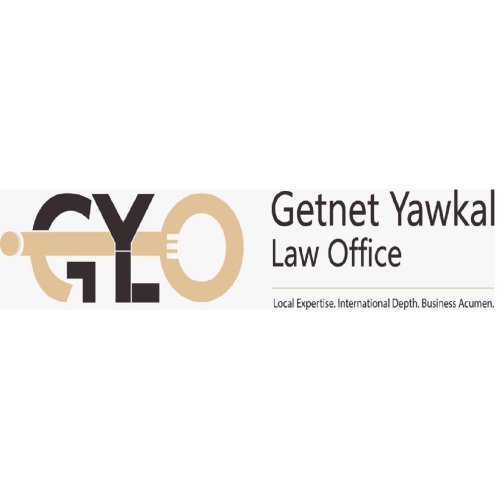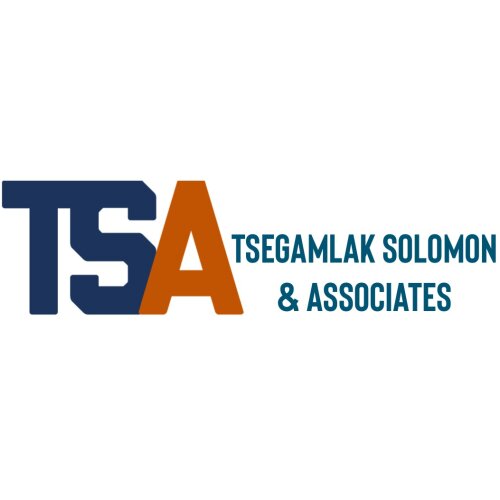Best Restructuring & Insolvency Lawyers in Ethiopia
Share your needs with us, get contacted by law firms.
Free. Takes 2 min.
Or refine your search by selecting a city:
List of the best lawyers in Ethiopia
About Restructuring & Insolvency Law in Ethiopia
Restructuring and insolvency law in Ethiopia represents the legal framework governing how financially distressed businesses or individuals can reorganize their debts, assets, or company structure, or, if necessary, declare insolvency and go through a formal process for the resolution of their financial obligations. Ethiopia has updated its restructuring and insolvency legislation in recent years to align with global best practices. The focus of these laws is to provide fair treatment to creditors, facilitate rehabilitation or an orderly exit for debtors, and offer protection for stakeholders involved in the insolvency process.
Why You May Need a Lawyer
Navigating restructuring and insolvency matters can be complex and challenging, especially when significant financial or legal interests are at stake. You may require legal assistance in situations such as:
- Your business is experiencing financial distress, and you need advice on restructuring options or whether to commence insolvency proceedings.
- You are a creditor seeking to recover debts from an insolvent debtor or to protect your interests in insolvency proceedings.
- You are an individual facing bankruptcy or needing to understand your rights and obligations under the law.
- You need representation in court proceedings related to insolvency or restructuring matters.
- You are considering out-of-court restructuring negotiations and need advice on agreements or documentation.
A lawyer specializing in restructuring and insolvency can help you understand the process, protect your legal rights, and ensure compliance with local laws and procedural requirements.
Local Laws Overview
The restructuring and insolvency framework in Ethiopia is primarily governed by the Commercial Code of Ethiopia (as revised in 2021) and related proclamations and regulations. Key aspects of Ethiopian restructuring and insolvency law include:
- Commencement of Insolvency Proceedings: Debtors who are unable to pay their debts as they fall due may voluntarily petition for insolvency, or creditors may file a petition against a debtor in certain circumstances.
- Types of Proceedings: The laws allow for insolvency liquidation, where the debtor’s assets are sold to pay creditors, and restructuring (reorganization), where an attempt is made to continue operations while paying creditors according to a restructured plan.
- Role of the Court and Trustee: The courts play an essential supervisory role, and trustees or liquidators are appointed to manage the process, safeguard assets, and represent the interests of creditors and other stakeholders.
- Creditor Rights: Creditors can participate in creditor meetings, vote on restructuring proposals, and have their claims verified and classified.
- Priority of Claims: Ethiopian law dictates the order in which creditors are paid from the assets of the insolvent entity or individual.
- Protection for Debtors: Debtors are afforded certain protections during restructuring, including stays on legal actions and the opportunity to propose payment plans.
- International Provisions: Ethiopia’s legal system recognizes some aspects of cross-border insolvency, although practical experience in complex international cases is still developing.
Frequently Asked Questions
What is the main legislation that governs insolvency in Ethiopia?
The primary legislation is the revised Commercial Code of Ethiopia, which contains provisions specific to restructuring, bankruptcy, and winding-up proceedings.
What is the difference between restructuring and liquidation?
Restructuring aims to rehabilitate a distressed business by reorganizing its debts and operations, allowing it to continue. Liquidation involves selling the debtor's assets to pay creditors, which usually results in the closure of the business.
Can individuals file for bankruptcy in Ethiopia?
Yes, individuals who are unable to pay their debts can apply for bankruptcy under Ethiopian law, subject to certain conditions.
How do creditors recover their money if a debtor files for insolvency?
Creditors must submit their claims to the trustee or court. Verified claims are paid according to the priority set out in the law, often from the sale of the debtor's assets or as part of a restructuring plan.
What protection does the law provide to a company under restructuring?
During restructuring, the law can provide a stay on creditor actions, giving the company time to propose and implement a restructuring plan without the threat of legal proceedings or asset seizures.
How long does insolvency or restructuring take in Ethiopia?
The process duration varies, depending on the complexity of the case, type of proceeding, and court timelines. Some cases may be resolved in a matter of months, while complex restructurings may take years.
Can foreign creditors participate in Ethiopian insolvency proceedings?
Yes, foreign creditors can participate, but they are subject to the same verification and priority rules as domestic creditors.
Are there alternatives to formal insolvency or bankruptcy proceedings?
Yes, debtors and creditors may negotiate out-of-court settlements or restructuring agreements to avoid formal proceedings, though these arrangements should be documented and compliant with the law.
What happens if fraud or mismanagement led to insolvency?
If fraud or mismanagement is proven, responsible parties may face civil liability or criminal prosecution, and creditors may have additional rights to recover losses.
Should I consult a lawyer before taking any actions related to insolvency or restructuring?
Yes, consulting a lawyer early can help you understand your rights and obligations, minimize risks, and guide you through the legal process efficiently.
Additional Resources
If you need more information or assistance, the following resources and organizations may be helpful:
- Ministry of Justice: Oversees the implementation of commercial and bankruptcy laws in Ethiopia.
- Federal Courts: Handles formal insolvency, restructuring, and bankruptcy proceedings.
- Chambers of Commerce: Provides business support services, including legal referrals.
- Professional Legal Associations: Offer directories of lawyers with experience in restructuring and insolvency.
- Ethiopian Investment Commission: Assists businesses, especially foreign investors, with regulatory and legal guidance.
Next Steps
If you are facing financial distress, believe your business may need restructuring, or are involved in a situation where insolvency proceedings are a possibility, it is crucial to act promptly. Here is how to proceed:
- Gather all relevant financial and legal documents, including contracts, debt statements, and correspondence with creditors or debtors.
- Contact a qualified lawyer who specializes in restructuring and insolvency to discuss your situation and receive tailored legal advice.
- Consider all available options, including out-of-court negotiations, formal restructuring proceedings, and, if necessary, insolvency filing.
- If your case requires formal proceedings, your lawyer will guide you through preparing and filing the necessary court documents and representing your interests throughout the process.
- Stay informed about your rights and obligations under the law, and maintain open communication with all stakeholders involved.
Dealing with restructuring and insolvency can be stressful and complex, but seeking professional legal assistance early can increase the likelihood of a favorable outcome.
Lawzana helps you find the best lawyers and law firms in Ethiopia through a curated and pre-screened list of qualified legal professionals. Our platform offers rankings and detailed profiles of attorneys and law firms, allowing you to compare based on practice areas, including Restructuring & Insolvency, experience, and client feedback.
Each profile includes a description of the firm's areas of practice, client reviews, team members and partners, year of establishment, spoken languages, office locations, contact information, social media presence, and any published articles or resources. Most firms on our platform speak English and are experienced in both local and international legal matters.
Get a quote from top-rated law firms in Ethiopia — quickly, securely, and without unnecessary hassle.
Disclaimer:
The information provided on this page is for general informational purposes only and does not constitute legal advice. While we strive to ensure the accuracy and relevance of the content, legal information may change over time, and interpretations of the law can vary. You should always consult with a qualified legal professional for advice specific to your situation.
We disclaim all liability for actions taken or not taken based on the content of this page. If you believe any information is incorrect or outdated, please contact us, and we will review and update it where appropriate.
Browse restructuring & insolvency law firms by city in Ethiopia
Refine your search by selecting a city.

















